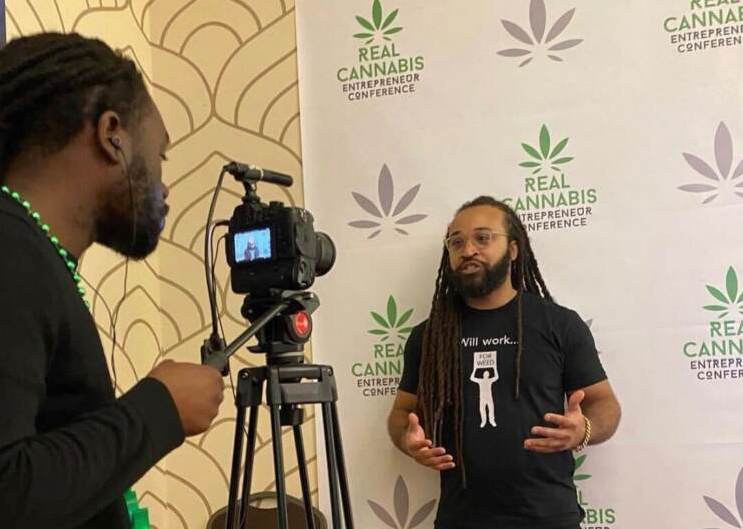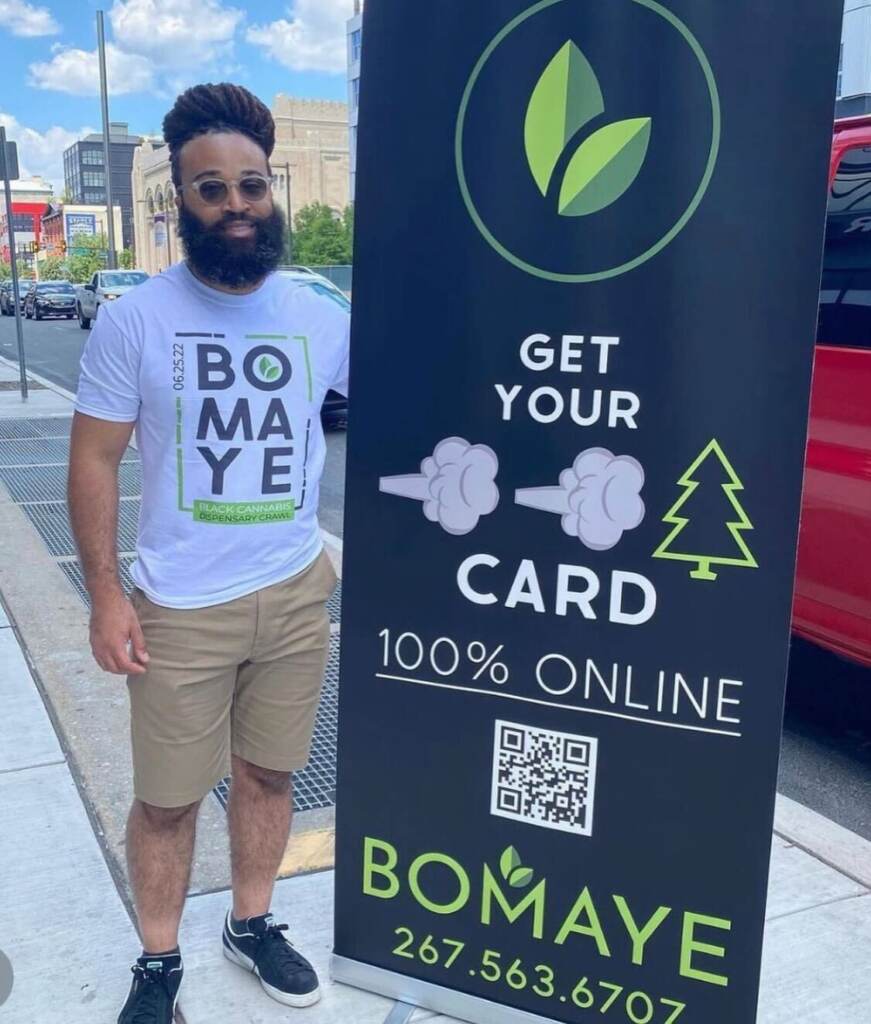How to get your criminal record expunged for weed convictions in New Jersey
Though New Jersey automated cannabis-related expungements for more than 360,000 people last summer, advocates say many people are still waiting.

John Turner is the founder of Bomaye, a Philadelphia based company that helps people obtain medical cannabis cards. (Courtesy of John Turner)
John Turner, owner of Bomaye, a Philadelphia-based company that helps people obtain medical marijuana cards, says his parents inspired him to pursue a career in cannabis.
For forty years, his father, a veteran attorney in the Delaware Valley, has represented people facing long-term prison sentences for weed. Turner said young Black people account for many of his father’s clients — which isn’t surprising considering police are four times more likely to arrest Black Americans than white Americans for cannabis-related offenses, despite similar usage rates. His mom is a breast cancer survivor. She used medicinal cannabis to treat her symptoms.
“That kind of inspired me to do this work in my own way,” Turner said.
Bomaye also helps organize expungement clinics in New Jersey, where voters overwhelmingly voted to legalize weed for adult personal use in 2020.

Though New Jersey automated cannabis-related expungements for more than 360,000 people last summer, advocates like Turner said many people are still waiting for the state to clear their public records.
Expungement in New Jersey is only available for low-level cases.
That includes people convicted of:
- distribution of marijuana less than 1 ounce or hashish less than 5 grams.
- possession of more than 50 grams of marijuana, or more than 5 grams of hashish.
- possession of 50 grams or less of marijuana, or 5 grams or less of hashish.
Turner said that isn’t enough to compensate for the harm caused by the War on Drugs, which disproportionately negatively impacted low-income Black and Hispanic neighborhoods.
“I would argue that all people with nonviolent marijuana-related charges should be dropped or expunged,” Turner said.
Mike Hoffman, a Vineland-based attorney passionate about helping people with cannabis-related convictions, agrees.
He and Turner say President Biden’s recent federal pardon for people with simple weed possession charges was a good step toward restorative justice, but called on elected leaders to do more.
“I think that there should be a review and a potential resentencing of anyone who is incarcerated with relation to cannabis,” Hoffman said.
“And I think that [expungement] should not just be limited to the possession, the minor possession charges, but they should extend all the way up to the indictable level charges, and the higher-level charges that would still be considered crimes under our statute.”
How does the expungement process work in New Jersey?
Hoffman says expungement isn’t a magic wand that makes weed convictions disappear. Instead, the state shields offenses from the public record. People with expunged records don’t have to disclose prior convictions on job and housing applications, among other provisions.
To apply for expungement, eligible people can file for judicial review on the state court’s website.
Hoffman says the process can sometimes take 15 minutes, but it can be confusing for the average person to understand. So, he helps people for little to no cost.
“Everybody’s story is different. And I want to ensure that if I’m helping them, I’m not just helping them because they had a cannabis offense. I’m helping them because they have the eligibility…and they want the chance to have a clean slate,” Hoffman said.
His services are largely funded by “people benefitting by legalization,” like permitted dispensary owners. He performs most expungement sessions virtually through Zoom.
Advocates want more transparency
It’s unclear exactly how many people have been incarcerated for weed in New Jersey, how many have expunged records, and how many are still in prison.
Racquel Romans-Henry is the policy director at Salvation and Social Justice, a New Jersey-based nonprofit. Her organization advocates for social justice reform through a faith-based lens.
Romans-Henry says it’s “frustrating” that New Jersey doesn’t disclose expungement data in real-time. It makes it harder to keep the government accountable, she said.
“There were 360,000 automatic expungements, but compared to what?” Romans-Henry said.
“I think that the frustration of not having full transparency really needs to be addressed on the part of the state so that we can really start to strategize around the next steps in ensuring that people are made whole, who have otherwise suffered from punitive and, quite frankly, racist policies around cannabis in the past,” she said.
Amol Sinha, executive director of the ACLU-NJ, noted that New Jersey’s prison population has significantly dropped in the last few years.
“We have about 12,500 people who are incarcerated right now. And we’ve reduced our prison population over the past couple of years by about 35 to 40%,” Sinha said.
Sinha said with expungement, the government has a chance to continue this trend.
“New Jersey, we can be more expansive with who’s eligible for expungement.”
“Currently, individuals that have cannabis charges that are paired with most other charges are ineligible for expungement. There are only a few combinations that are eligible,” Sinha said. “It would be good for the courts and officials to do an analysis of what cannabis charges are out there that are still on people’s records because they’re paired with those other charges that make them ineligible.”

Get daily updates from WHYY News!
WHYY is your source for fact-based, in-depth journalism and information. As a nonprofit organization, we rely on financial support from readers like you. Please give today.






